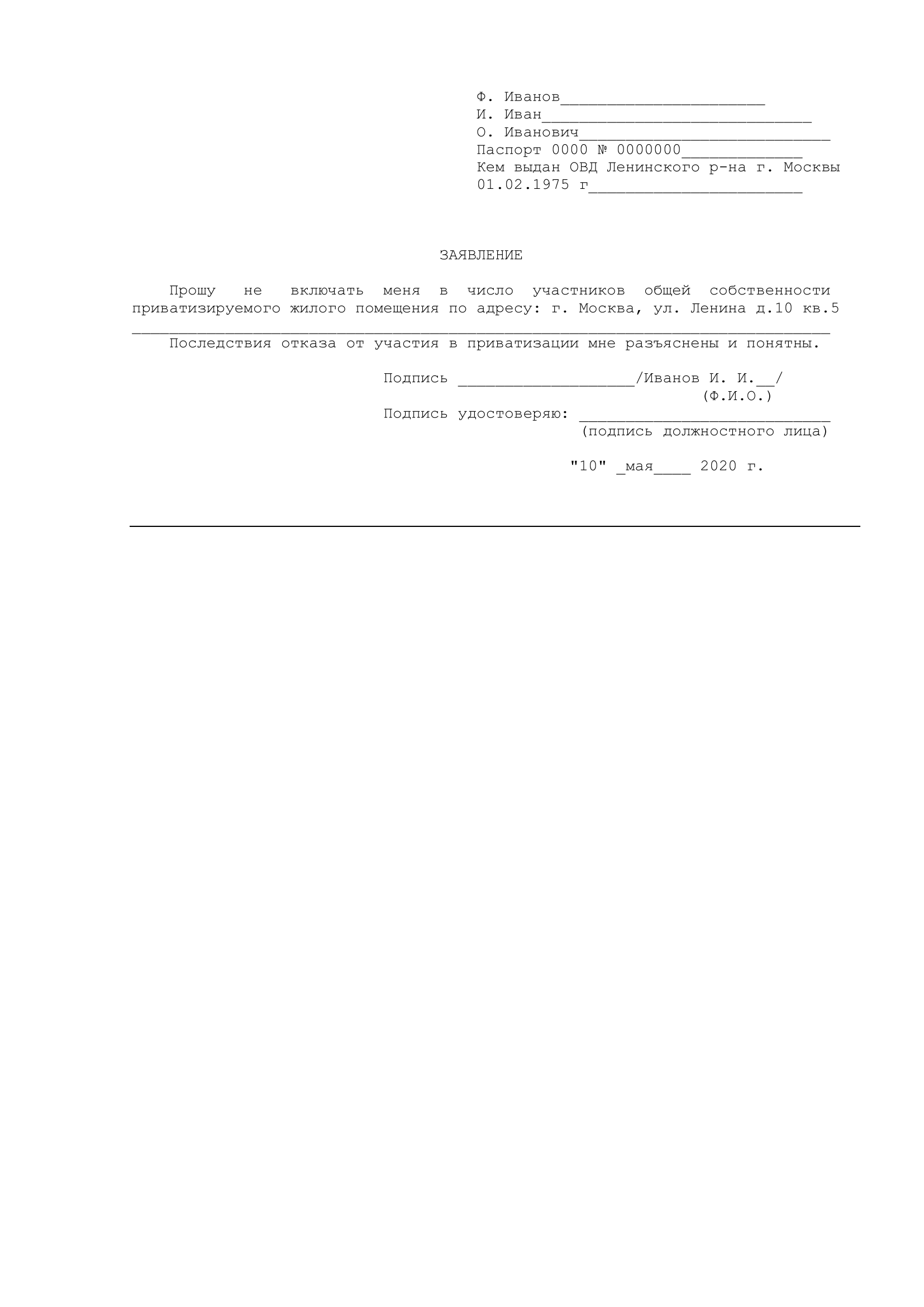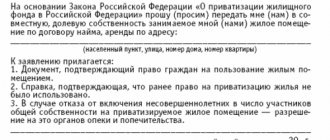Emergency house: what is it?
A house is considered unsafe if it is recognized in accordance with the established procedure as unfit for habitation. The grounds for recognizing housing as unsafe are indicated in the Decree of the Government of the Russian Federation dated January 28, 2006 No. 47 “On approval of the Regulations...”:
- Destruction or deformation of the structure of a house, if living in it cannot be called safe, and major repairs are impossible or impractical from a financial point of view.
- If the house is located in an area where mudflows and landslides are possible; inundation by flood waters. Provided that possible destruction cannot be prevented.
- If the housing is located in an area where accidents are likely to occur, in which it cannot be protected from destruction.
- If the house is located in an area where a constant excess of the level of electromagnetic, ionizing radiation, vibration, and noise is recorded.
Note: a house is recognized as unsafe by decision of the administration after an inspection by an interdepartmental commission, which usually includes employees of the Ministry of Emergency Situations, the Urban Planning Committee, and the Housing and Communal Services Department. If it can be repaired, emergency status will be denied.
Take the survey and a lawyer will tell you for free how to avoid mistakes in an apartment purchase and sale transaction in your case
What is emergency housing?
Housing is considered unsafe if it poses a threat to the life and health of residents. If such a property is not subject to major repairs, then it is subject to immediate demolition. However, in any case, until the danger is eliminated, living in it is impossible. In the event of demolition, tenants of municipal apartments are resettled in other buildings, and owners are offered a choice - either alternative housing or monetary compensation.
Emergency housing can be identified based on the following criteria:
- the supporting structures are badly worn out and there is a high probability of their collapse;
- the house is located in a place unsuitable for living, for example, in a swamp;
- important communications are damaged;
- a man-made disaster is expected in the area where the house is located.
Only a special expert commission can officially assign a house the status of an emergency structure. Housing monitoring is carried out by local authorities once every few years. However, if the building began to collapse earlier or there are no visual problems, and living in the apartment causes discomfort, then any of the residents has the right to report a malfunction and order an early examination.
Is it possible to privatize an apartment in a dilapidated building for free?
Features of privatization are regulated by the Law of the Russian Federation dated July 4, 1991 No. 1541-1 “On the privatization of the housing stock of the Russian Federation” and the Federal Law dated December 21, 2001 No. 178-FZ “On the privatization of state and municipal property.”
In Art. 4 of Law No. 1541-1 states that housing recognized as unsafe is not subject to privatization under any circumstances. The same applies to dormitories, real estate in closed military camps, and official housing (except for the housing stock of agricultural enterprises).
Is it possible to sell or buy an apartment in a dilapidated building?
Payment of utilities in a dilapidated house
Deprivatization procedure
Deprivatization is not the most popular and not a particularly simple procedure. It is recommended to use the services of experienced lawyers who will represent the interests of clients. Below is an approximate procedure. It may vary slightly depending on your region of residence.
Procedure
- Collect consents from all registered residents of the apartment and have them certified by a notary (usually the personal presence of all persons who wrote these consents is required).
- Submit an application for deprivatization (usually it is best to do this right at the time of application, but you can prepare it in advance).
- Prepare all the necessary documents (see below for more details).
- With documents and an application, contact the nearest branch of the MFC (My Documents) and declare your desire to deprivatize housing.
- Receive a receipt for the application. This is mandatory, otherwise documents may be “accidentally lost.” Any action must be supported by relevant papers.
- Expect a deprivatization agreement. This document is prepared by specialists and the apartment owners cannot influence this process in any way. It is recommended to check regularly, at least once a week, about the fate of the application, since it is not a fact that the MFC will notify applicants that the agreement is ready.
- The deprivatization agreement must be signed by all interested parties. But they don't take him away. Immediately after signing, MFC employees pick it up again and transfer it to Rosreestr to change the ownership of the property.
- After this, the contract is finally issued to the residents, but this is not the end of the procedure. Now the DGI (Department of City Property) must draw up a social lease agreement (it may be called differently). And only after this, when this document is signed, the residents receive the right to lifelong residence in the deprivatized apartment.
Documentation
Along with the application for deprivatization, the following documents must be submitted to the MFC:
- Title documents on the basis of which the residents previously privatized this apartment (originals required).
- Extract from the Unified State Register of Real Estate (shows ownership and confirms the absence of encumbrances). It is recommended to order this document immediately before contacting the MFC in order to provide the most recent sample.
- Extract from the house register. Provided for the period from the moment of privatization until the moment of application to the MFC.
- A certificate from the management company or housing office confirming that there is no debt for utility bills.
- Registration certificate for the apartment.
- Passports or birth certificates for all residents of the apartment.
- Permission from the guardianship authorities to deprivatize the apartment (provided that minors are registered in the housing).
This is important to know: Federal Law 178 on the privatization of state and municipal property in 2021
Expenses
The deprivatization procedure itself is free. However, certain costs may still arise. Of these, the most basic is payment for notary services when certifying the consents of apartment owners. Other expenses:
- New registration certificate: from 10 thousand rubles.
- Fresh extract from the Unified State Register of Real Estate: 350 rubles.
Deadlines
Deprivatization is a lengthy procedure, and not all deadlines can be clearly defined. It might look something like this:
- Collection of consents and documents: from 1 day.
- Submitting an application to the MFC: from 1 day.
- Consideration of the application and drawing up a deprivatization agreement: about 2 months.
- Change of ownership in Rosreestr: about 1-2 weeks.
- Obtaining a rental agreement for municipal housing: about 2 weeks.
FREE CONSULTATIONS are available for you! If you want to solve exactly your problem, then
:
- describe your situation to a lawyer in an online chat;
- write a question in the form below;
When is privatization of emergency housing possible?
Some people mistakenly confuse the concepts of “emergency” and “dilapidated” housing. The difference between them is:
- The house is considered unsafe by decision of the administration; living in it is unsafe. An apartment in it cannot be privatized. Residents must be accommodated on a first-come, first-served basis.
- Dilapidated means housing in unsatisfactory condition, but you can live in it safely. Apartments in dilapidated buildings are subject to privatization if residents have such a right. New property will not be issued to replace old property.
Conclusion: if the house is dilapidated, but suitable for living and is not considered unsafe, you can privatize an apartment there.
Are you tired of reading? We’ll tell you over the phone and answer your questions.
Privatization of dilapidated housing: pros and cons
Let's consider the advantages and disadvantages of privatizing an apartment in a dilapidated building:
Advantages and disadvantages
No need to spend money on buying a home. Even in the regions, apartments in the oldest buildings cost from 1 million rubles. Privatization makes it possible to obtain real estate for free
If the house is recognized as unsafe, the owner can count on compensation for the purchase price or the provision of a new apartment
You can register anyone. If the living space belongs to the municipality or the state, and a person lives there under a social tenancy agreement, only close relatives can be registered without the consent of the owner. To register outsiders, the consent of the owner is required
If a minor participates in privatization, upon reaching 18 years of age he will again be able to privatize real estate
Having received ownership of the apartment, you can dispose of it at your own discretion: sell, donate, exchange, bequeath
If the owner accumulates debts for housing and communal services, the apartment will not be taken away. When living under a social tenancy agreement, the landlord, if there is arrears for 6 months, has the right to evict the tenants through the court
You can do redevelopment. In a non-privatized apartment this is possible only with the consent of the landlord
The right to privatize adults is granted only once. In the future, it will not be possible to receive real estate from the state for free.
Under the social tenancy agreement, the landlord undertakes to maintain the residential premises in proper condition. After privatization, this responsibility falls on the owner
If one of the owners who participated in privatization has not lived in the apartment for a long time, he cannot be discharged
You will have to pay property taxes annually
Utility costs will increase. The line “hiring fee” will disappear, but “payment for major repairs” will appear.
Who can privatize an apartment?
The following categories of citizens have the right to participate in privatization:
- Minor children registered in a municipal apartment. Refusal from privatization is possible only with the consent of the guardianship authority.
- Adult registered residents.
Note: adult family members can refuse privatization and subsequently privatize other housing. The refusal must be made in writing. If a child has privatized housing, after 18 years of age he can again participate in privatization.
How to privatize emergency housing?
To privatize an apartment in a house that is in disrepair in the opinion of tenants, you need to:
- Collect documents, prepare applications, issue refusals (if any).
- Submit documents for consideration.
- Receive an agreement on the transfer of housing ownership and sign it.
Let's look at each step in more detail.
Step 1: preparation of applications and documents
For privatization you will need:
- Statement.
- Passports of all registered family members over 14 years of age.
- Birth certificates for children under 14 years of age.
- Social tenancy agreement.
- Order.
- Extract from the house register.
- Certificate confirming the right to participate in privatization.
- Written refusals or consent of family members to privatization.
Note! The refusal to privatize is valid for 30 days. It is better to complete it immediately before submitting your application.
Sample application
Consultation on document preparation

Sample application
Consultation on document preparation
Contents and sample application
An application for participation in the privatization of dilapidated (dilapidated) housing is filled out on site when submitting documents. It contains the following information:
- Full name, passport details, date of birth, SNILS of the applicant.
- Registration and actual residence addresses.
- Phone number, email address.
- To whom the application is addressed: full name of the owner, full name. official.
- Request for the provision of services for the privatization of premises.
- Address of the privatized apartment,
- Method of providing a solution: in person, by post.
- Consent to the processing of personal data.
- Date of compilation, signature with transcript.
Step 2: Submitting documents
Documents can be submitted through the MFC or State Services. The second method is available for users with verified accounts.
Legal advice: as of October 2021, in most regions, MFCs are accepted by appointment. This is very convenient: just come 10 minutes before your appointment, enter the code and receive a coupon. There is no need to wait in line; reception is carried out in a timely manner.
Elena Plokhuta
Lawyer, website author (Civil law, 7 years of experience)
Note: state duty for re-registration of ownership in the amount of 2,000 rubles. payable on the spot. A payment receipt is not always needed. Now all services can be paid for at the MFC using bank cards. It is advisable to keep the payment receipt if payment is made by another method.
Step 3: getting the result
Based on the results, an agreement is issued on the transfer of ownership of residential premises between the municipality and tenants with a note on registration of the transfer of ownership (Article 7 of Law No. 1541-1).
If documents were submitted through State Services, when signing the agreement you need to take with you the social rent agreement, warrant and notarized documents that were attached to the application.
Deadlines
Documents are reviewed within two months from the date of submission of documents (Article 8 of Law No. 1541-1).
Price
The privatization itself is free of charge. But for the transfer of ownership you need to pay a state duty in the amount of 2,000 rubles.
Additional costs may also arise:
- Registration of a notarized power of attorney – about 5,000 rubles. It is needed if a representative acts on behalf of the future owner.
- Debt settlements. Until the debt on housing and communal services is repaid, the tenant will not be able to privatize the housing.
- Registration of refusals to participate in privatization with a notary – up to 5,000 rubles. for every.
Grounds for refusal
Privatization can be refused in several cases:
- An incomplete set of documents is presented.
- The submitted documents do not meet the requirements.
- There is no right to privatization.
- Documents have been submitted for housing, which by law cannot be privatized.
Note! The decision to refuse is issued to the applicant in writing. If he does not agree with it, it can be challenged in court. Sometimes the procedure is suspended, the reason must be communicated. They need to be eliminated, and the process will be resumed.
How to privatize an apartment in dilapidated housing?
So, although the dilapidated building is not in the best operational condition, it is not in emergency condition, and therefore is subject to privatization. However, first it is necessary to confirm that living there does not pose a threat to life and health.
Order, algorithm
To re-register dilapidated housing, you must proceed as follows:
- We hold a general meeting of all persons registered in a municipal apartment and make sure that no one is against re-registration;
- we send an application for an examination to the local administration or housing department;
- We are waiting for an interdepartmental examination and a decision on the status of the house;
- if the housing is recognized as dilapidated, but still suitable for permanent residence, we prepare a package of documents for privatization;
- submit an application for privatization to the administration of the locality;
- we sign an agreement with the municipality on the transfer of housing into private ownership;
- draw up a transfer and acceptance certificate;
- we pay the state fee;
- we register the rights in Rosreestr and receive an updated extract from the Unified State Register of Real Estate.
Procedure
An important stage in the privatization of dilapidated housing is examination. In order for a special commission to go to the site and inspect it, it is necessary to submit a collective application from all tenants of dilapidated housing to the local administration. There are situations when the examination is initiated by the municipality.
During an on-site inspection of the building, commission members evaluate it:
- technical serviceability;
- sanitary and hygienic condition;
- compliance with fire safety requirements;
- fire resistance;
- possibility of living in cold and hot weather;
- a number of other important characteristics.
Documentation
To carry out privatization, you will need the following documents:
- application for an examination of a residential building;
- passport of each participant (for minors under 14 years old - birth certificate);
- extended extract from the apartment/house register;
- extract from the Unified State Register for real estate being re-registered;
- social tenancy agreement or move-in order;
- registration certificate for housing;
- refusals of privatization certified by a notary from all residents who do not want to take part in the transaction;
- permission from the guardianship and trusteeship authority (if minors are involved).
This list of documents is not complete; depending on the situation, registrars may request additional papers, for example, a notarized power of attorney (if his representative is acting on behalf of the employer).
Do not skip the stage associated with the examination. It is very important to make sure that the building is suitable for habitation before starting renovation. Otherwise, you may be refused. In addition, if it is proven that, despite the ban, you managed to privatize emergency housing, the deal will be canceled through the court, the housing will return to the balance of the municipality, and its recent owners will again become tenants.
Expenses
The main cost column for the privatization of dilapidated housing is the state duty, the amount of which in 2021 is 2,000 rubles (paid for each adult participant). In addition, you will have to pay 300 rubles for receiving an extract from the Unified State Register of Real Estate and approximately 1000 rubles for notary services for drawing up refusals and powers of attorney. But the visit of the expert commission to the site is free of charge for tenants; all expenses necessary for this procedure must be borne by the owner of the property, that is, the municipality.
Deadlines
Any privatization of municipal real estate is not a quick matter, especially when it comes to dilapidated housing. If you decide to re-register an apartment as your property, be prepared to spend at least several months on this procedure:
- consideration of an application for an interdepartmental examination lasts at least 2 weeks;
- the examination itself will take about 15 more days;
- the application for privatization will be considered at the mayor's office for 2 months;
- changes to the Unified State Register will be made by Rosreestr employees within 14 days.
Upon completion of all these procedures, that is, 3–4 months from the start of the re-registration, you will receive an extract from the Unified State Register of Real Estate, which will be the title document for your new property.
Lawyer's answers to private questions
Is it necessary to have a privatization agreement for an apartment in a dilapidated building certified by a notary?
No. According to Art. 7 of Law No. 1541-1, notarization of the agreement is not required.
Is it possible to privatize an emergency private house?
No. Any emergency housing (house, apartment, other premises) cannot be privatized. If it is simply dilapidated, it is possible to re-register ownership with the consent of the municipality.
Until what year is free privatization valid?
Privatization is valid indefinitely. Such a law was adopted by the State Duma back in February 2021. The norms that limited the deadlines until 2021, Art. 1 Federal Law dated February 22, 2017 No. 14-FZ was declared invalid.
Before privatization, I lived with my husband; he gave up his share and was registered in the apartment. Now the housing has been privatized, we got divorced. Can I write it out?
No you can not. According to Part 3 of Art. 31 of the Housing Code of the Russian Federation, the former spouse’s right to use the apartment does not terminate if at the time of privatization he had equal rights to housing with the owner.
How are shares determined when privatizing an apartment in a dilapidated building?
The parties themselves determine the size of shares by agreement. In the absence of such, equal shares are allocated (Article 245 of the Civil Code of the Russian Federation). But it is also possible to register it as joint ownership without allocating shares.
Permission for privatization
You can submit documents to the municipality in person, through the MFC or State Services. It is necessary to contact the district administration at the location of the living space.
In accordance with Art. 8 of the Law of the Russian Federation of July 4, 1991 N 1541-1, the local administration must review the documents and application and make a decision within 2 months. If this deadline is violated, the perpetrators must be held accountable.
In case of receiving an unlawful refusal, a citizen has the right to protect his interests in court.







